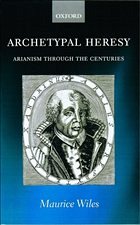Arianism has always been regarded as the archetypal heresy. It did af*irm the divinity of Christ as Son of God, but unlike orthodoxy, regarded that divinity as secondary and inferior to that of the Father, the one Supreme God. Recently many scholars have presented a more positive view of the religious intentions of Arianism than has been customary in the past. Yet the Nicene Creed, which was designed explicitly to outlaw Arianism, remains one of the primary expressions of Christian orthodoxy. This book traces the history of how Arianism has been viewed in later Christian thought, particularly where scholars or religious groups have adopted broadly Arian views. The main example of a re-emergence of Arian ideas is among the leaders of the new scientific Enlightenment in the early eighteenth century, especially Sir Isaac Newton and his disciples, William Whiston and Samuel Clarke. The longest section of the book deals with how and why their beliefs took this form, and why this approach disappeared again at the end of the century. A final section considers the interaction of belief and critical judgement in British Arian scholarship in the nineteenth and twentienth centuries.
Arianism started as a movement in the third century AD - maintaining that Jesus was less divine than God. Traditionally regarded as the archetypal Christian heresy, it was condemned in the famous Nicene Creed and apparently squashed by the early church. Less well known is the fact that fifteen centuries later, Arianism was alive and well, championed by Isaac Newton and other scientists of the eighteenth-century Enlightenment. This book asks how and why Arianism endured.
Arianism started as a movement in the third century AD - maintaining that Jesus was less divine than God. Traditionally regarded as the archetypal Christian heresy, it was condemned in the famous Nicene Creed and apparently squashed by the early church. Less well known is the fact that fifteen centuries later, Arianism was alive and well, championed by Isaac Newton and other scientists of the eighteenth-century Enlightenment. This book asks how and why Arianism endured.

